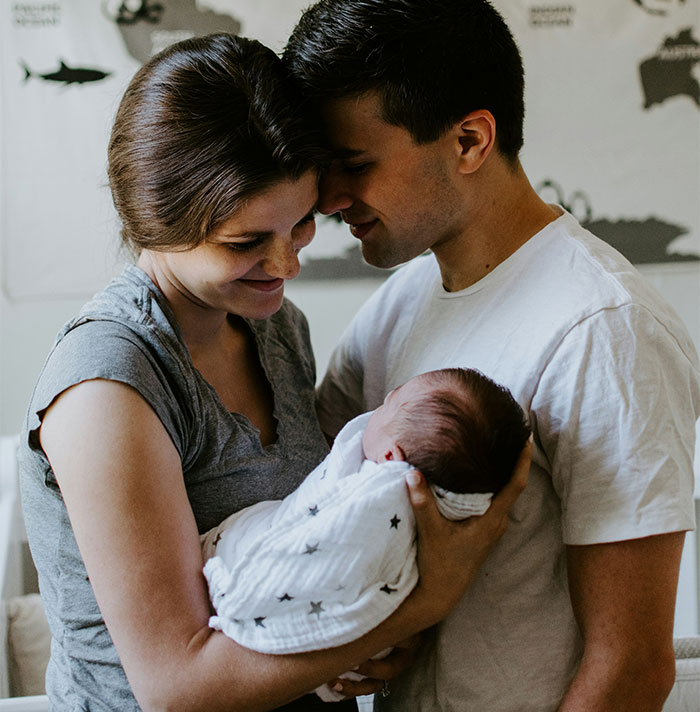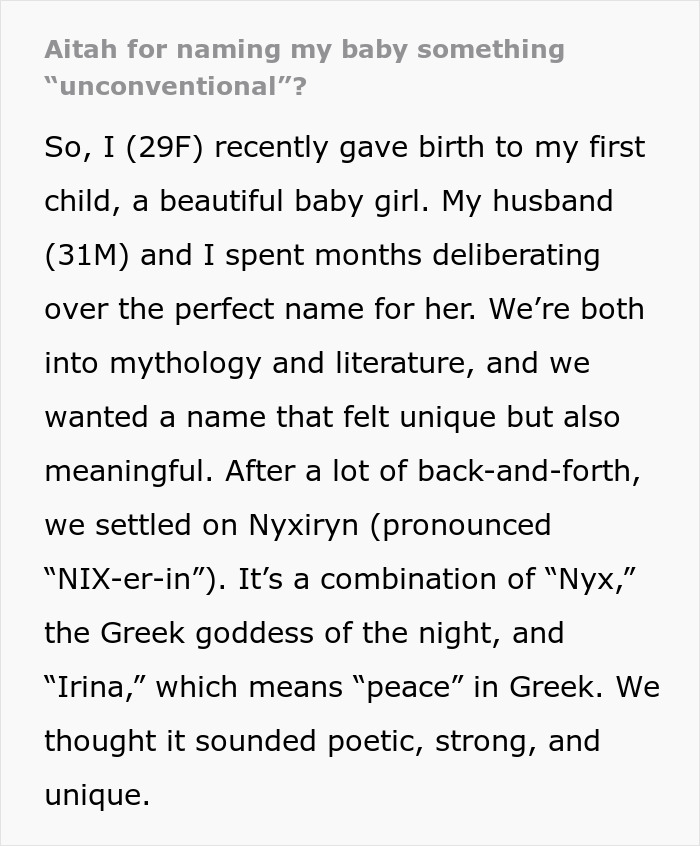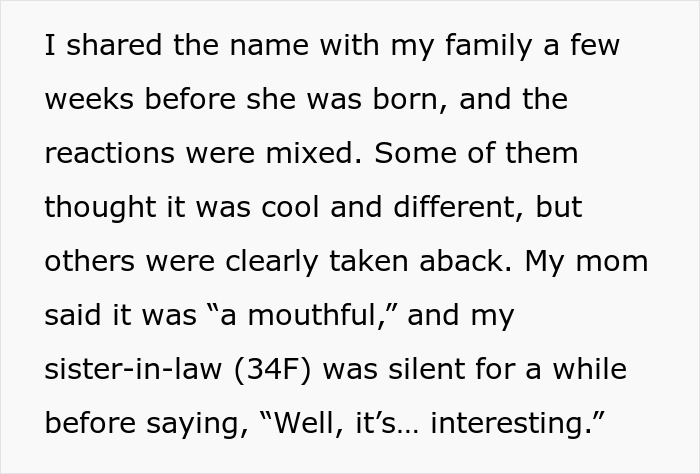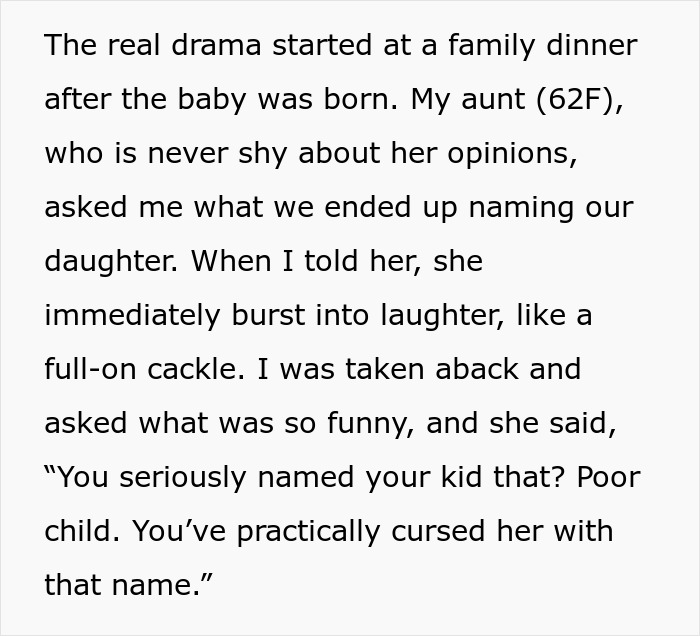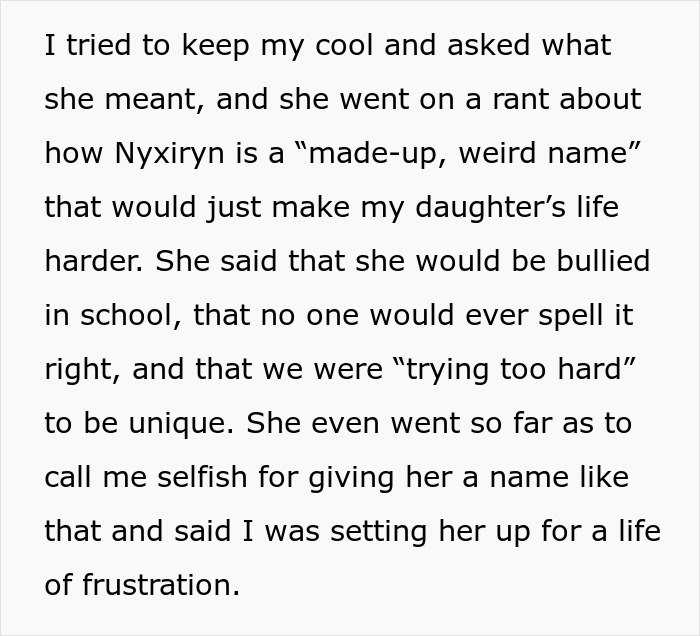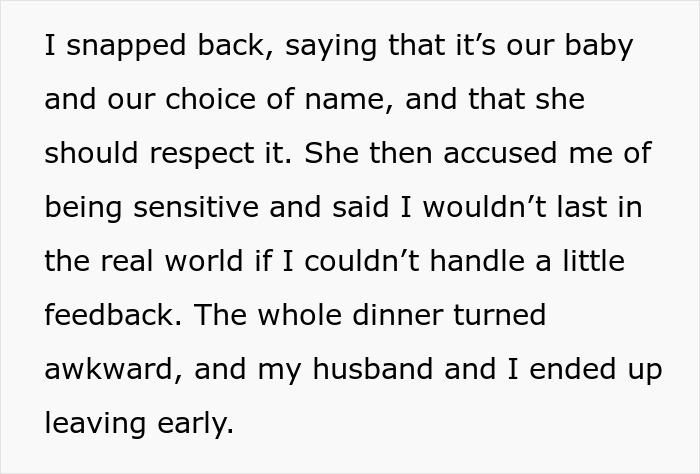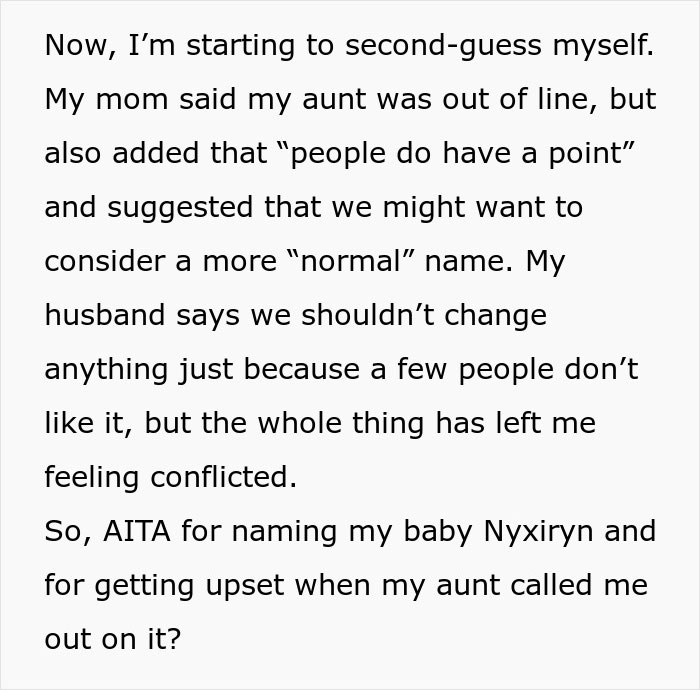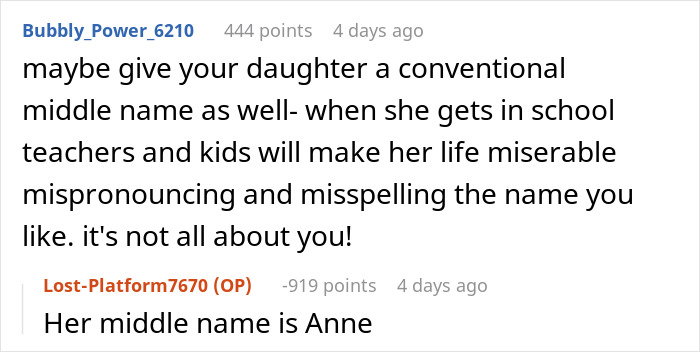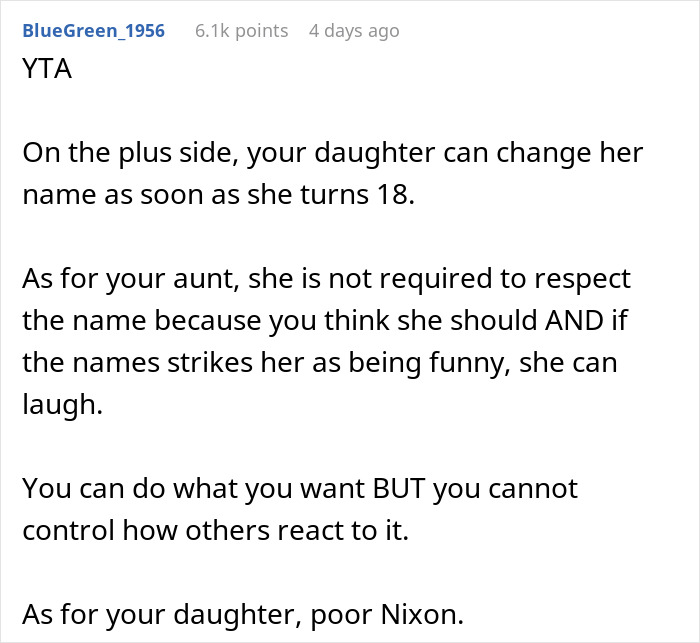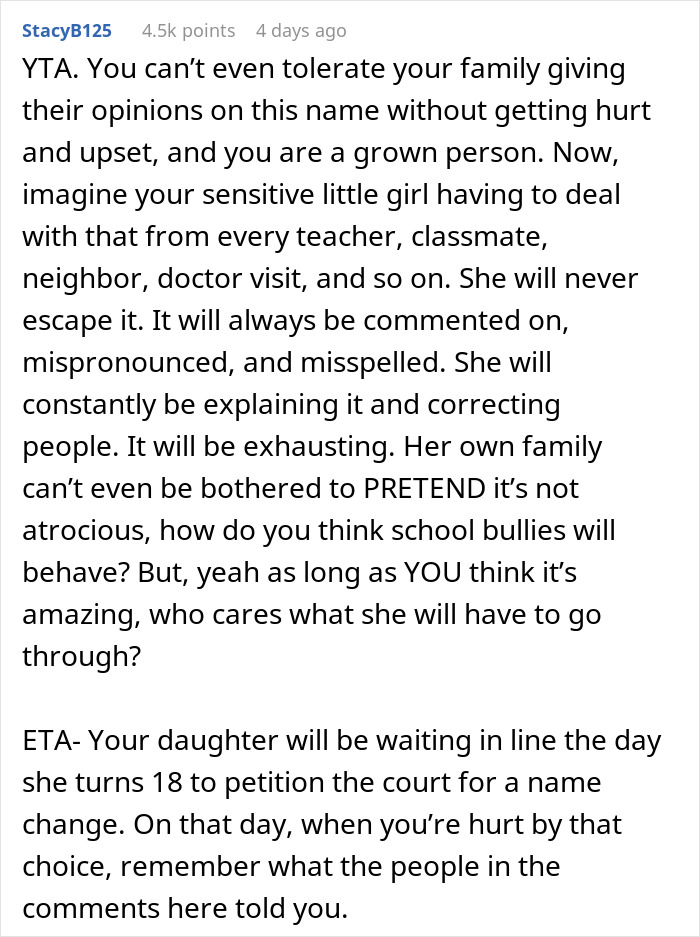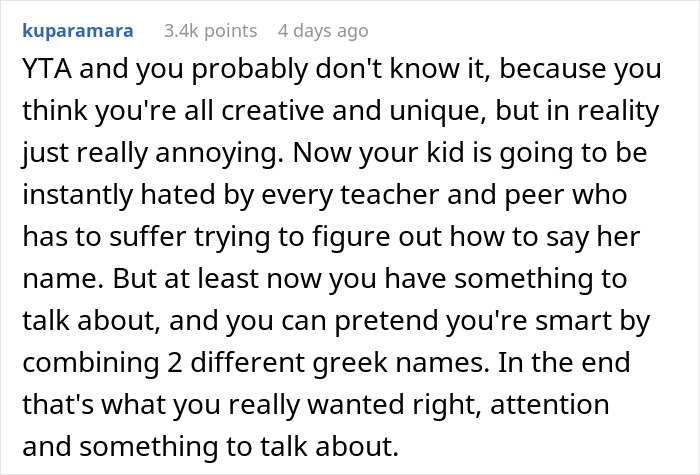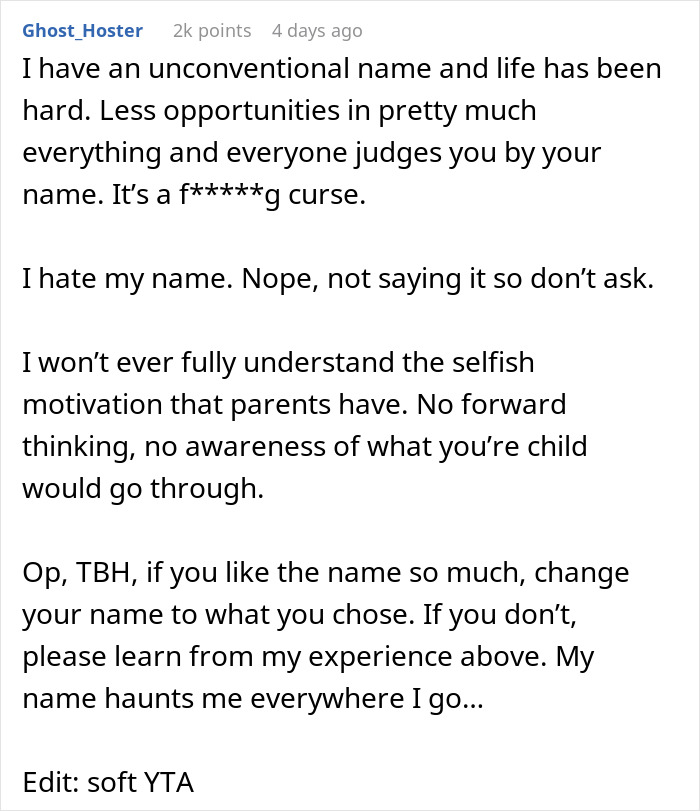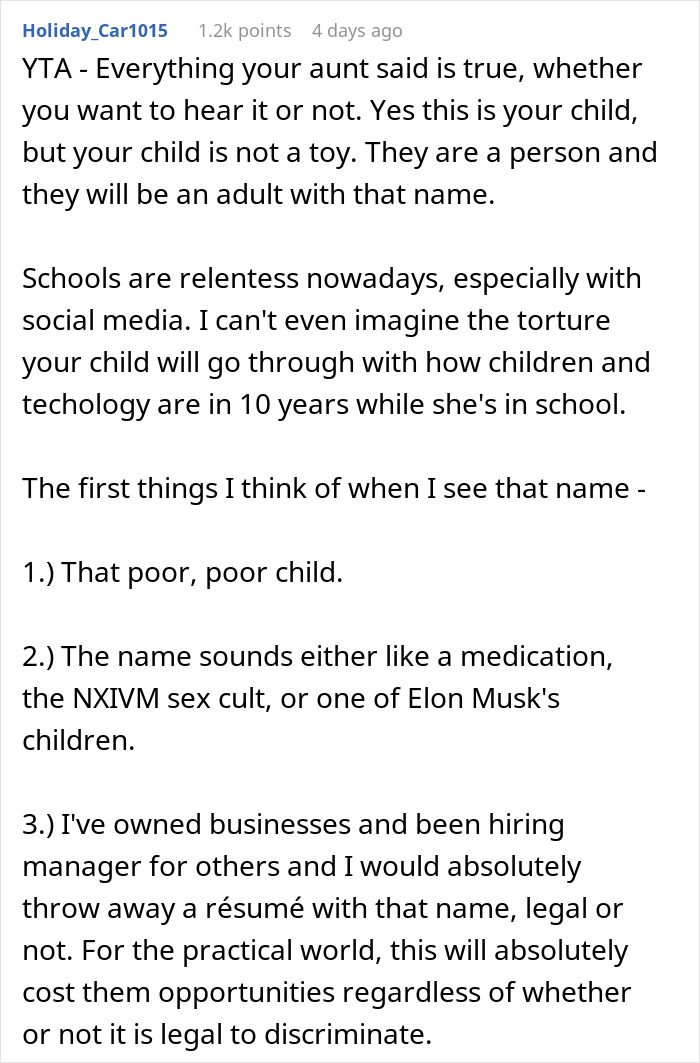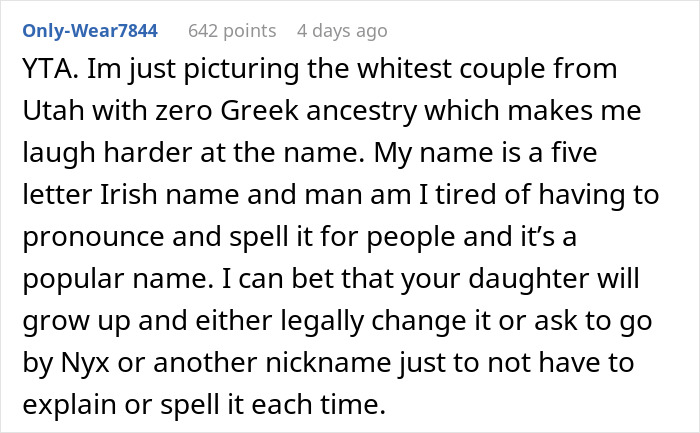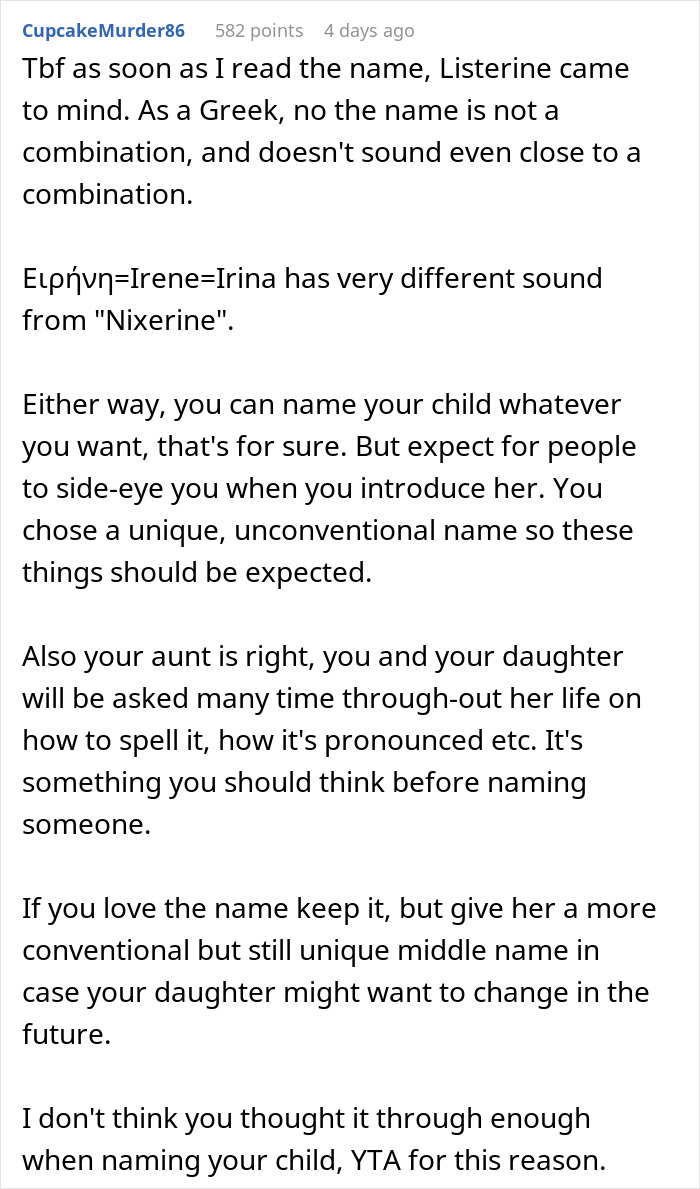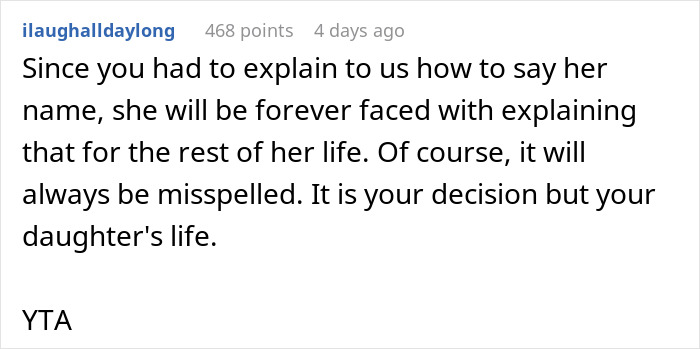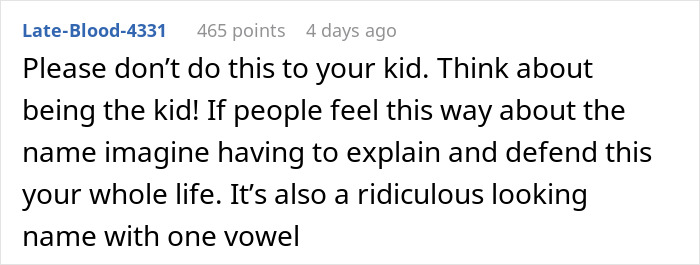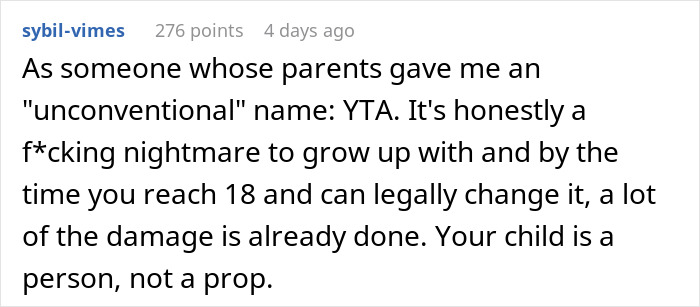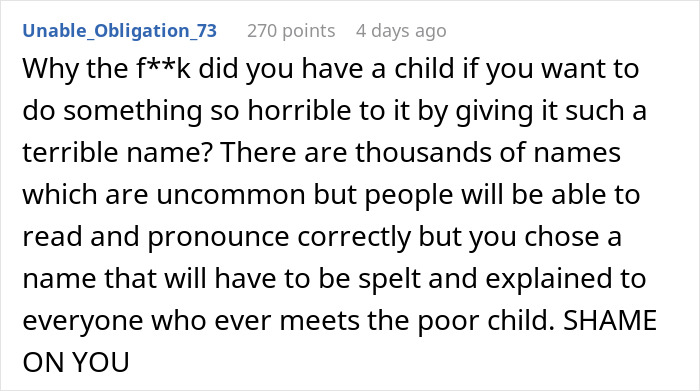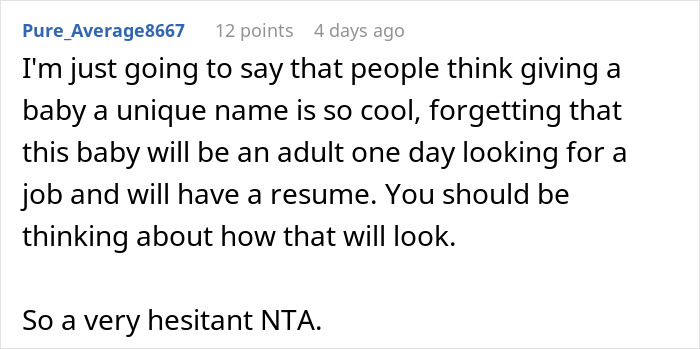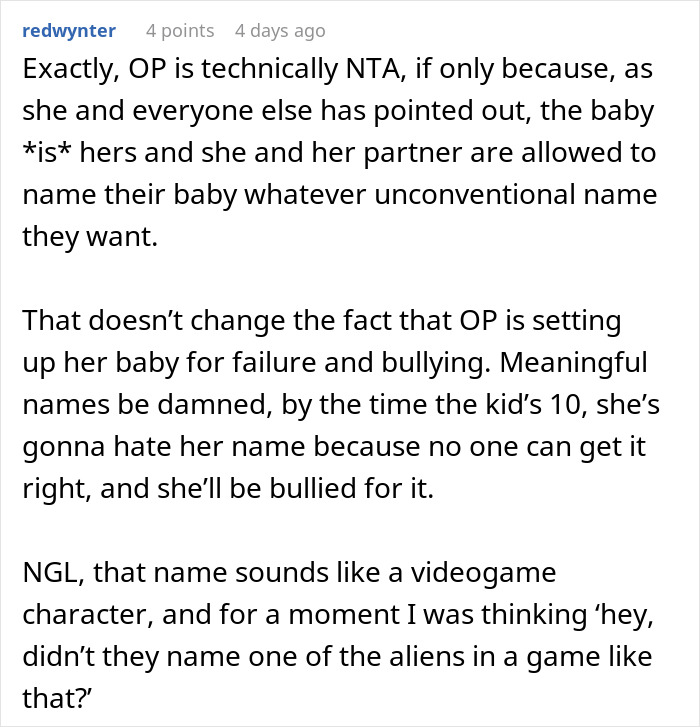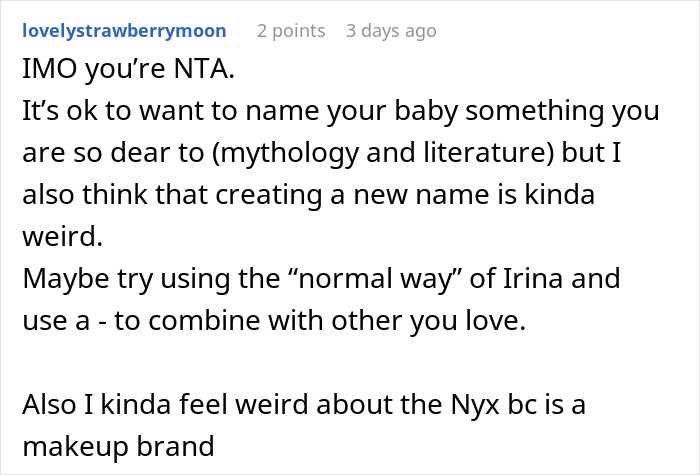For some couples, naming their baby becomes a high-stakes affair
Image credits: Kelly Sikkema (not the actual photo)
And this mother doesn’t know if she and her husband aren’t making a mistake with their firstborn
Image credits: zamrznutitonovi (not the actual photo)
Image credits: Lost-Platform7670
A name is a huge part of us, and common ones aren’t a curse at all
It’s understandable why parents put so much thought into naming their kids. Research shows that our names can reflect even our families’ socioeconomic status and political affiliations. Since they disclose so much information to the world, some might view the choosing part as a high-stakes game.
In the US and the UK, the current trend is toward more unique names—indicative of the Western world’s more individualistic mindsets. “Finding a name that has authentic roots, but is completely undiscovered, is the ultimate baby name status symbol,” Pamela Redmond Satran, founder of the baby-naming site Nameberry, said.
When you live in a culture that values standing out, it’s no surprise that some people are trying to find ways to make their children seen.
However, the point that the Redditor’s aunt was trying to make is also valid. Extremely common, classic names give very little away. Since biblical names never really go out of style, it means their bearers can be almost any age. They can be Jewish, Christian, or religiously unaffiliated. There are white Michaels and Davids and Marys, and there are black ones too. And these names are not particularly linked to politics, either.
Many immigrants followed this logic when naming their children. A 2016 study published in the American Sociology Review looked at data on Irish, Italian, German, and Polish immigrants in the late 19th and early 20th centuries. The authors discovered a strong correlation between second-generation immigrants with traditionally American first names and occupational achievement. They suggested that parents who chose an American name were signaling their families’ orientation toward cultural assimilation, which worked to their kids’ advantage.
Given the extent to which names are connected to local culture, some countries have even gone so far as to restrict parents’ choices to government-approved lists. Icelandic parents, for example, must pick from 1,800 girls’ names and 1,700 boys’ names. Sweden and Norway regulate baby names as well, and France abandoned its list only in 1993.
Speaking of which, during one study, researchers asked people in France and Israel to look at photographs of strangers’ faces and guess their names from five possible choices. Participants selected the correct name far more frequently than pure chance would have allowed them.
The researchers suggested it’s because our appearances are shaped by the cultural expectations and stereotypes associated with a given name.
“We show that people change their faces as they grow,” the study’s co-author Anne-Laure Sellier told Quartz. “You’re conditioned to look a certain way because you want to fit in and be accepted.” We expect a girl named Joy to be cheerful and smiley, so she is likely to develop a bright personality accordingly.
It could very well be that parents who give their children a common name are, indeed, allowing them to become anyone they want.
Image credits: Kobe – (not the actual photo)
The woman added that she and her husband also want to give the girl a “normal” middle name
But most of the people who read the story think the parents are making a mistake
Some folks highlighted the parents do have a right to go ahead with their plan but still thought they probably shouldn’t
